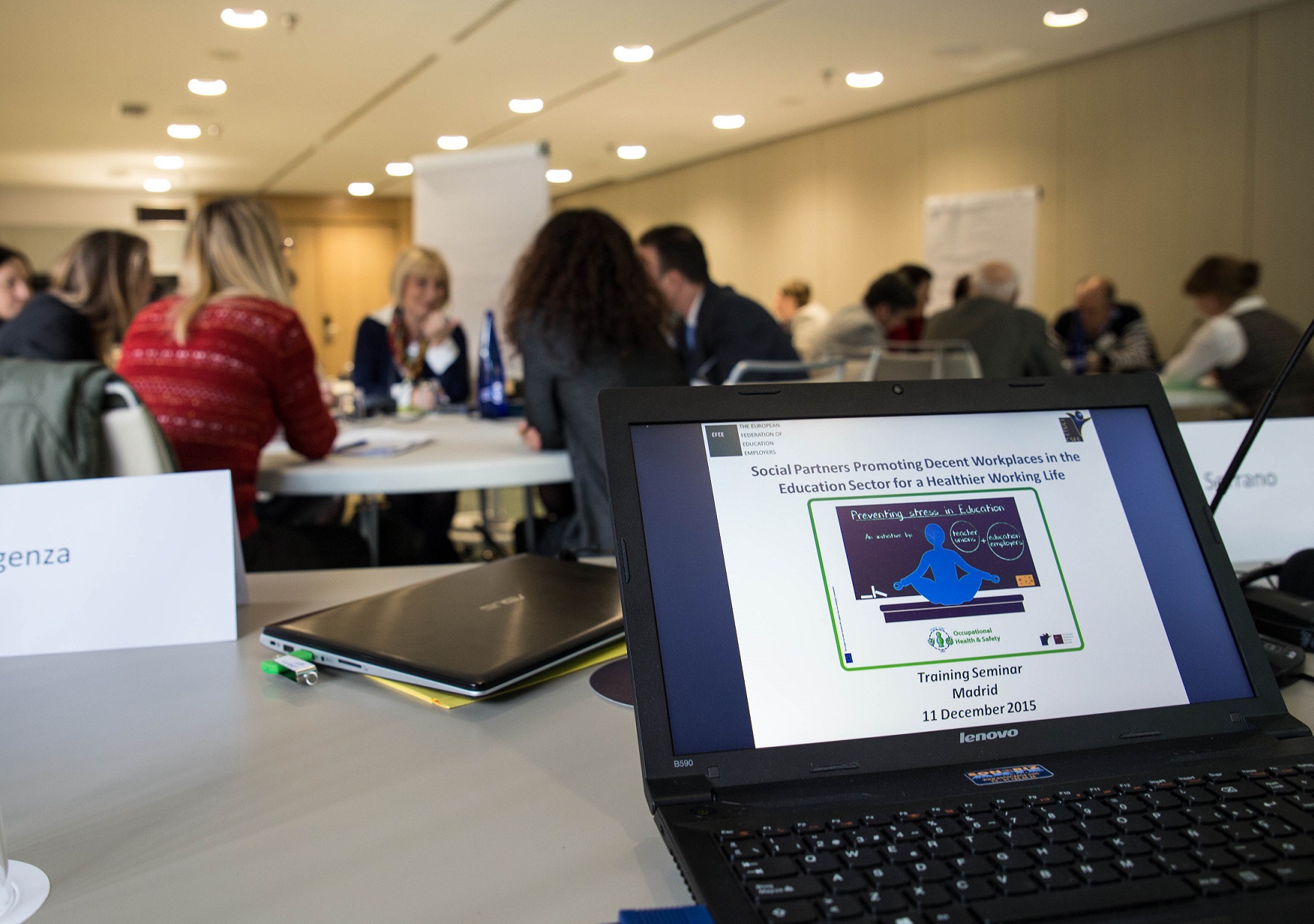Social Partners preventing Stress in Education – First Training Seminar
Published:
ETUCE has organised the first training seminar in Madrid of the project ‘Social Partners promoting Decent Workplaces in the Education Sector for a Healthier Working Life’. The project objectives are to prevent work-related stress in the education sector and to promote joint social partner guidelines at national, regional and local level aiming to prepare the ground of a joint declaration with ETUCE and EFEE (European Federation of Education Employer) on this topic.
In the frame of the project ETUCE and EFEE have launched an online survey, which asked about joint social partner initiatives on tackling work-related stress. Member organisations of ETUCE and EFEE have organised four case studies in Romania, Finland, Belgium and Germany, with the support of the ETUCE secretariat. The reports of the case studies are published on the ETUCE website, explaining the good practice examples detected during the interviews with teachers, school leaders, health and safety experts and representatives from ministries and teacher unions.
At the training seminar representatives from ETUCE and EFEE member organisations had the opportunity to discuss about the results of the online survey, debate about the good practice examples and exchange experience on tackling psychosocial hazards and work-related stress on national level. During a series of presentations the participants learned more about the ETUCE social partner project and about psychosocial hazards from a European point of view. Tim Tregenza from the European Agency for Safety and Health at Work (EU OSHA) explained the major risk factors of psychosocial hazards and the national strategies and European legislation which are developed to avoid them. Clara Llorens from the research institute ISTAS (Union Institute of Work, Environment and Health) gave an overview on the research project, introducing the results of the online survey the four case studies. Carmen Radu, a teacher who participated in the Romanian case study, and Patricio Perez, a member of the advisory group of the project, presented the results of the case studies in Romania and Finland. In the working group sessions the participants shared their own experience and their knowledge on strategies to tackle work-related stress and discussed about guidelines in averting psychosocial hazards.
The next training seminar is to be organised in London on 29 January 2016 – the participants will have the opportunity to discuss about the joint social partner guidelines on the prevention of work-related stress. The guidelines are going to be further discussed at the final project conference in June 2016 in Bucharest.